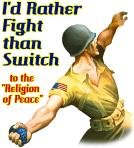 Lawyers in Sudan's Darfur region are investigating reports of slavery during the conflict.
Lawyers in Sudan's Darfur region are investigating reports of slavery during the conflict."There are many cases of abductions," a Sudanese lawyer told the BBC.
They are too afraid of possible reprisals from either militias or state security agents to give their names but say there is strong evidence.
"It is happening but on a smaller scale than in the south," one Sudanese human rights worker said. Some 11,000 people were enslaved in the north-south war.
Arab pro-government "Murahaleen" militias rode their horses into southern villages, killing men, raping women, looting anything they found and burning the huts.
The Darfur conflict broke out just as the war in the south was coming to an end and eyewitness reports bear a striking similarity of atrocities committed by the militias, known in Darfur as the Janjaweed.
One of the worst affected parts of south Sudan was Bahr al-Ghazal - just south of the border with the largely Arab north and not far from South Darfur.
Sudanese human rights workers say some members of the Arab Rezeigat community have been in both the Janjaweed and the Murahaleen but most of the Janjaweed are from different Arab tribes.
Sudan's veteran anti-slave campaigner James Aguer, however, says they are exactly the same groups, just with a different name.
Sudan's government has strongly denied claims it mobilised first the Murahaleen and then the Janjaweed to terrorise civilian populations seen as rebel sympathisers.
It also denies there are slaves in Sudan, instead using the euphemism "abdcutees".
But some analysts say the similar methods used could be because they have undergone the same training.
One aid worker said that in both cases, after local groups took up arms against the government, Arab tribal leaders were told that black Africans were trying to take their land and needed to be resisted.
The Arabs were given weapons with horrific results, he said.
Until now, a key difference between the two conflicts is that despite all the other atrocities committed, there have been no reports of people in Darfur being abducted and held for more than a few weeks.
A court in Khartoum has heard evidence that some 40 women and girls were abducted two years ago from the village of Wadi Saleh by a group of Janjaweed.
One of the militiamen sought a court order to let him legally marry one of the women but after he admitted how they had met, the judge refused his request.
Both the woman and the man said the 40 had been divided up between the raiders as a form of booty.
But the woman has since disappeared.
There is no independent confirmation of the claims but the testimony closely resembles that of some of the southerners who were abducted during raids on their villages and spent years in slavery in the north before returning home following the north-south peace deal.
One of the lawyers now investigating the reports says he has personally met two people who were forced to work for a prominent Janjaweed leader for six months, before another member of the militia helped them escape.
One reason why there seems to be less slavery in Darfur could be religion.
Both Darfur and south Sudan are mostly inhabited by black Africans but southerners are mostly Christian and animist, while Darfuris are generally Muslim, like the Arabs who have traditionally dominated Sudan.
Forced conversion seemed to be one motivation behind the abduction of southerners - they were mostly given Islamic names and told they were now Muslim.
One group of abductors was known as the Muhajadeen [Islamic holy warriors].
But this justification cannot be used in Darfur.
"Muslims are strictly forbidden to enslave fellow Muslims," the lawyer said.
While they proceed with their investigations, the lawyers are extremely concerned for their safety.
The Hague-based International Criminal Court has already issued an arrest warrant for a top Sudanese official over the conflict in Darfur - and says it is investigating others.
As a result, anyone seen asking questions about possible war crimes such as enslavement would be seen as a potential ICC spy, the lawyers fear.
http://www.kbc.co.ke/story.asp?ID=41638














No comments:
Post a Comment